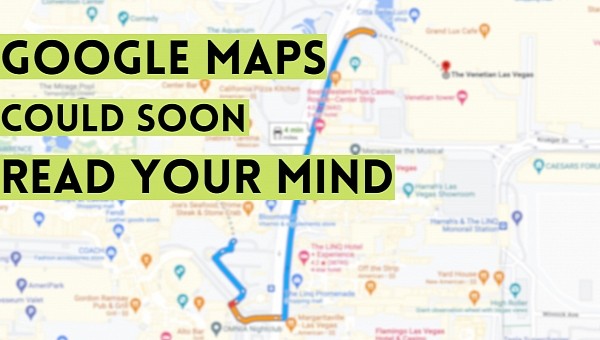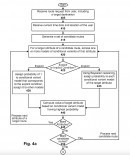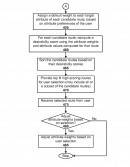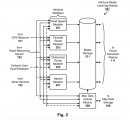Google is exploring a new innovative approach to improve the navigation system in Google Maps, this time with what the company calls adaptive and personalized routing.
As described in a patent that was published this week, the new technology allows Google Maps to generate routing models based on more factors, including settings that are tailored to each driver.
The current system that Google Maps and other navigation apps rely on takes into account data like traffic conditions, the distance to the defined destination, and the vehicle type. Additionally, users are provided with further navigation settings, such as enabling or disabling unpaved roads, toll routes, and complex intersections.
Google explains in its patent that Google Maps can be trained to learn more information that would eventually be used for navigation. Data like the typical time of day when the user drives, the preferred routes, the weather, and details collected from the sensors in the vehicle could allow Google Maps to provide personalized navigation.
The mobile version of Google Maps would be fairly limited on this front. The application doesn’t have access to vehicle sensors, so the additional factors that it can use for personalized navigation would only rely on external sources, such as weather forecast. The Android Automotive integration of Google Maps is the one to benefit from the patent, as the navigation app can read more data, including the battery range and charging information.
Google explains that its navigation software can also collect the road speed, the hazards that the driver comes across and how they handle them, as well as the behavior in different road conditions.
All of these would be processed by Google Maps to determine better routes for every driver. For example, someone who typically drives slower on a specific route could end up being directed on a longer route where they use a higher speed, obviously within the legal limits. This way, the Google Maps route guidance would make more sense for each and every user, with the navigation to no longer be focused on sending everybody to the faster route to a destination.
The search giant explains that such technology could help tackle one of the biggest shortcomings of navigation software, namely the limited array of information that’s used for generating routes. In Google’s view, the current navigation solutions have a hard time making a difference between the days of the week, eventually providing the user with the same route despite changing conditions.
Google’s new idea is currently in the patent stage, but there’s no doubt that expanding Google Maps in this direction is something the company is working on. Its investments in AI and machine learning could help, especially as Google Maps is getting access to more vehicle data thanks to the deeper integration happening at the hardware level.
The current system that Google Maps and other navigation apps rely on takes into account data like traffic conditions, the distance to the defined destination, and the vehicle type. Additionally, users are provided with further navigation settings, such as enabling or disabling unpaved roads, toll routes, and complex intersections.
Google explains in its patent that Google Maps can be trained to learn more information that would eventually be used for navigation. Data like the typical time of day when the user drives, the preferred routes, the weather, and details collected from the sensors in the vehicle could allow Google Maps to provide personalized navigation.
The mobile version of Google Maps would be fairly limited on this front. The application doesn’t have access to vehicle sensors, so the additional factors that it can use for personalized navigation would only rely on external sources, such as weather forecast. The Android Automotive integration of Google Maps is the one to benefit from the patent, as the navigation app can read more data, including the battery range and charging information.
Google explains that its navigation software can also collect the road speed, the hazards that the driver comes across and how they handle them, as well as the behavior in different road conditions.
All of these would be processed by Google Maps to determine better routes for every driver. For example, someone who typically drives slower on a specific route could end up being directed on a longer route where they use a higher speed, obviously within the legal limits. This way, the Google Maps route guidance would make more sense for each and every user, with the navigation to no longer be focused on sending everybody to the faster route to a destination.
The search giant explains that such technology could help tackle one of the biggest shortcomings of navigation software, namely the limited array of information that’s used for generating routes. In Google’s view, the current navigation solutions have a hard time making a difference between the days of the week, eventually providing the user with the same route despite changing conditions.
Google’s new idea is currently in the patent stage, but there’s no doubt that expanding Google Maps in this direction is something the company is working on. Its investments in AI and machine learning could help, especially as Google Maps is getting access to more vehicle data thanks to the deeper integration happening at the hardware level.






